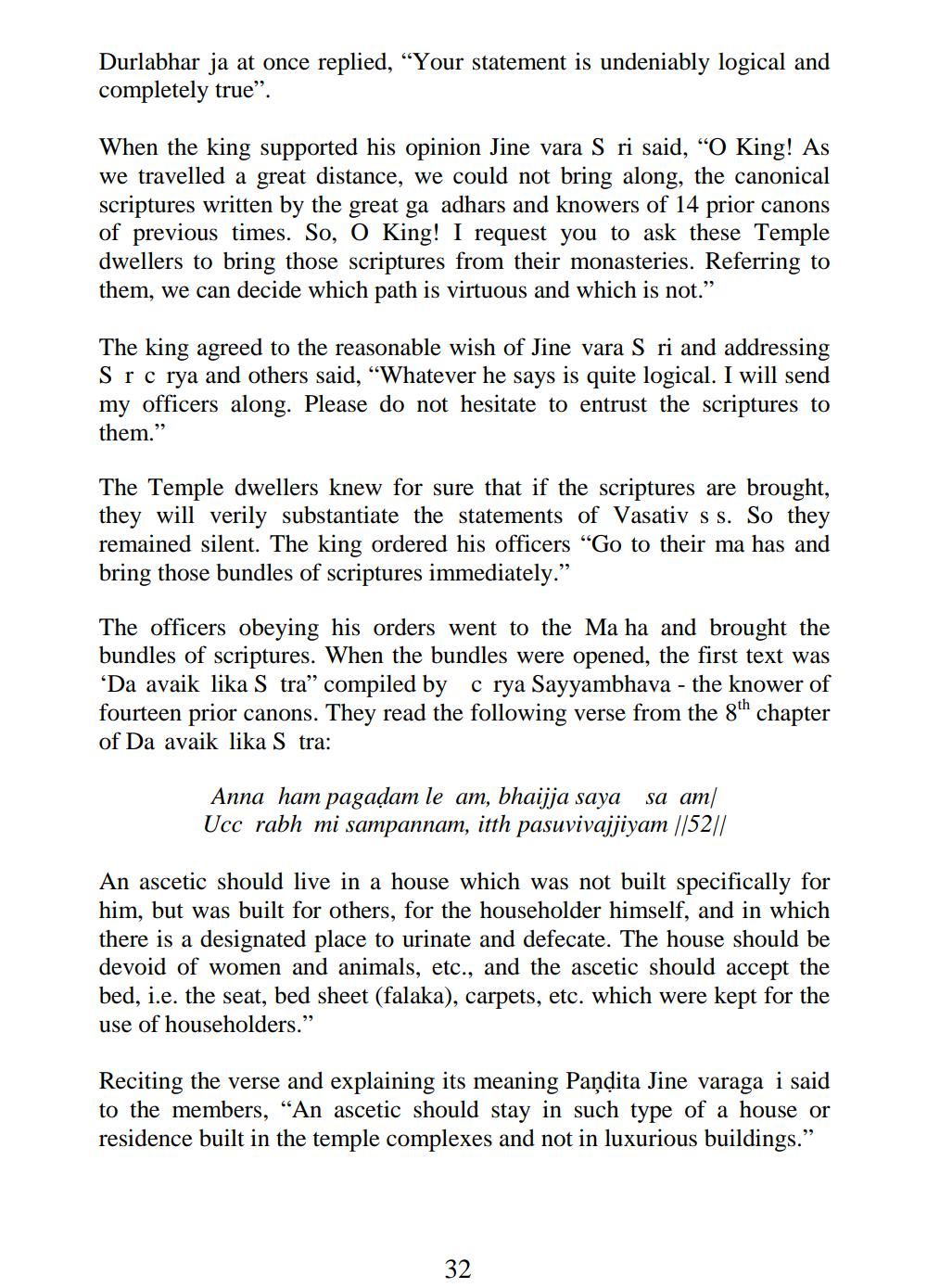________________
Durlabhar ja at once replied, “Your statement is undeniably logical and completely true”.
When the king supported his opinion Jine vara S ri said, "O King! As we travelled a great distance, we could not bring along, the canonical scriptures written by the great ga adhars and knowers of 14 prior canons of previous times. So, O King! I request you to ask these Temple dwellers to bring those scriptures from their monasteries. Referring to them, we can decide which path is virtuous and which is not.”
The king agreed to the reasonable wish of Jine vara S ri and addressing Sr c rya and others said, “Whatever he says is quite logical. I will send my officers along. Please do not hesitate to entrust the scriptures to them."
The Temple dwellers knew for sure that if the scriptures are brought, they will verily substantiate the statements of Vasativ ss. So they remained silent. The king ordered his officers "Go to their ma has and bring those bundles of scriptures immediately.”
The officers obeying his orders went to the Ma ha and brought the bundles of scriptures. When the bundles were opened, the first text was ‘Da avaik lika S tra" compiled by crya Sayyambhava - the knower of fourteen prior canons. They read the following verse from the 8th chapter of Da avaik lika Stra:
Anna ham pagadam le am, bhaijja saya sa am/ Ucc rabh mi sampannam, itth pasuvivajjiyam ||52||
An ascetic should live in a house which was not built specifically for him, but was built for others, for the householder himself, and in which there is a designated place to urinate and defecate. The house should be devoid of women and animals, etc., and the ascetic should accept the bed, i.e. the seat, bed sheet (falaka), carpets, etc. which were kept for the use of householders.”
Reciting the verse and explaining its meaning Paņdita Jine varaga i said to the members, “An ascetic should stay in such type of a house or residence built in the temple complexes and not in luxurious buildings.”




